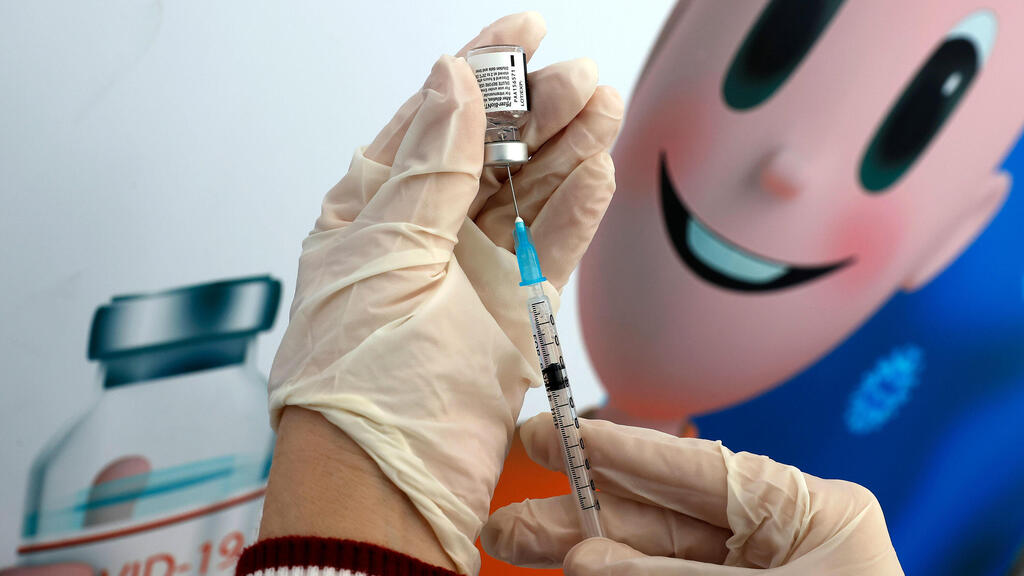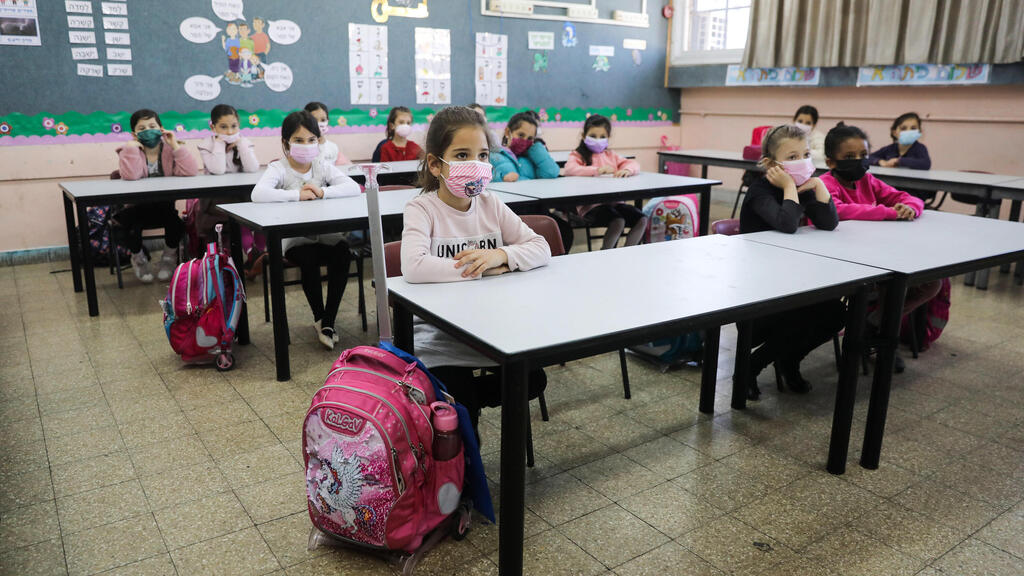A senior health official on Wednesday said the coronavirus pandemic is "still here" and Israel is in the midst of a "battle" against the pathogen.
Head of Public Health Services at the Health Ministry Dr. Sharon Alroy-Preis made the statement just days after claiming the pandemic in Israel was "dying out" and the ministry is considering scrapping the outdoor mask mandate.
4 View gallery


Head of Public Health Services at the Health Ministry Dr. Sharon Alroy-Preis
(Photo: Alex Gumburg)
"We are only midway through the battle, the pandemic is still here,” said Alroy-Preis. “We have hundreds of verified patients every day. In addition, about 37% of the population is yet to be vaccinated. That is why we still must be careful.”
Despite her previous reassurance, Alroy-Pries says she fears the apparent decline in the virus’ reproduction number might be merely a temporary relief.
“I hope this respite lasts until the war [on coronavirus] ends. There are a lot of threats that can come from outside," said said Alroy-Pries, referring to foreign virus variants. "Since a third of the country is not yet vaccinated, including children, we have a fertile ground for outbreaks.”
Alroy-Pries added thative despite the success of Israel’s vaccination drive - in which over five million Israelis received the first jab and over 4.8 million have been given the booster shot - we have yet to achieve herd immunity.
“When we can move around without masks and the threat of new infections ceases, then we will have achieved herd immunity. Currently though, we are not quite there,” said Alroy-Pries.
“We must also understand that herd immunity depends on the virus’ reproduction (R) number (which indicates how many other people are infected by one virus carrier), and since each variant has its own R number, we still cannot safely say we have achieved herd immunity.
“We have, however, achieved a level of protection which allows us to open some things up. This is an achievement for all of us, this is a victory for the State of Israel, the numbers are falling and the R number is below 1,” added the health official.
The professor also addressed the prospect of vaccinating children, following Pfizer's announcement that its COVID vaccine is effective and safe for adolescents aged 12 to 15.
"This is a very important issue that needs to be discussed professionally with Israel’s pandemic taskforce," she said. “The decision on the matter will be made based on the opinions of the Health Ministry’s many professionals and those outside it."
The health official added that she cannot give her recommendation on the matter, since the ministry is still waiting for the FDA to approve the vaccine for children.
“Despite this, talks [on the matter of vaccinating children] are already underway in the ministry, since we are working under the assumption that the FDA will approve the shots for adolescents.”
According to Alroy-Preis, the current inability to vaccinate children is the reason why the country’s education system has reopened in a somewhat restrained manner.
“Currently, about 2.5 million children still unvaccinated. In the past, when we reopened the education system too soon, we saw an increase in infections, especially among youths. That is why we are working in a responsible manner,” said Alroy-Pries.
“We are now working to scrap capsule studies in third grades... Then we’ll see what becomes of the infection rate, and then we'll make our decision regarding the fifth and sixth grades."




